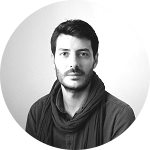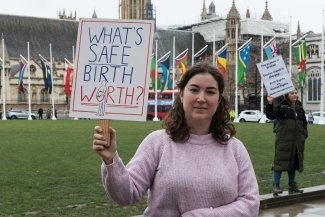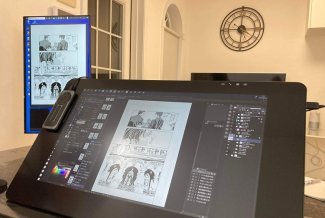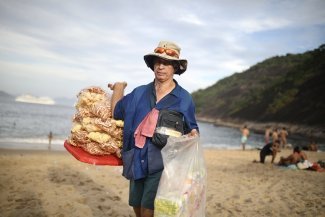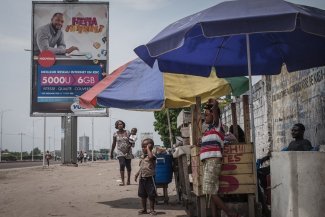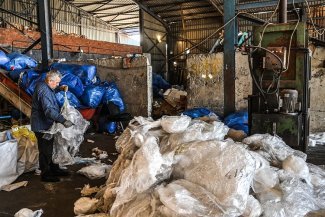Youth, as well as being a time when the future adult’s horizons start to take shape, is also a stage during which new responsibilities are taken on and choices are made which, whether right or wrong, end up being lessons in life. Young people are a very powerful driver of a society’s dynamism, as they are not as bound by work or family obligations and are therefore freer to engage in new projects and make transformative decisions. But if the social and economic conditions are not right, young people risk being driven to take decisions that could damage their future and the future of their communities.
Young Sahrawis are confronted with these dilemmas, like other young people, but are also faced with the task of trying to establish their identity in refugee camps which, despite the apparent immobility, are in a process of change. The Sahrawi settlements, also referred to as wilayas (five in total), are named after provinces in their country of origin, Western Sahara, and are located on land ceded by Algeria, in the southwest of the country. This part of the desert, called a hamada, is a rocky and inhospitable area known as ‘a desert within the desert’ because of the extreme conditions there.
After more than 40 years of forced exile, the young population in the camps has started to establish its own references and its own approach to the conflict with Morocco. After the 1991 armistice, which put an end to the war that broke out in 1976 (following Spain’s withdrawal from Saharan territory and Morocco’s subsequent civil and military occupation of it), the Sahrawi people, represented by the Polisario Front, tried to win the right of return through diplomatic channels. A binding referendum on the future of the Occupied Territories should have been held under the auspices of the United Nations but, almost 30 years later, the situation is still being blocked by Morocco, on the grounds that it does not agree with the criteria for establishing the voter lists.
There is no reliable data on the number of young people (aged 15 to 30) living there but, based on an extrapolation of the figure for the whole of the African continent (where young people account for 32.4 per cent of the total population), and taking into account the differences between countries, the young population in the camps is estimated to be around 40,260, according to a Spanish study on young refugees in the Sahrawi camps.
Faced with this bleak outlook, young Sahrawis may have the final say. The key challenge is how to reinvent and rebuild themselves whilst taking on board their future prospects and the changes that have taken place over the years without turning their backs on the principles and ideals of the generations that have gone before them. The challenge ahead of them is great, but so too is the desire to overcome the gridlock.

Larabas Said test drives a car – that he plans to sell – on a desert plain near Smara.
Larabas is a child of the conflict and, although he is not pro-war, he supports the idea of a general uprising if no solution is found to the situation of his people. For the time being, he is happier working on the brake drums of cars and trucks than beating the drums of war. The 25-year-old has already travelled the roads of half of Europe. He worked as a haulier while living in Bilbao, Spain, until he decided to return to the camps, to be close to his loved ones. The young man has swapped the tarmac for sand, working as a mechanic, fixing cars and then driving to Mauritania to sell them, after negotiating a thousand and one obstacles across the desert.

Despite the obstacles, Larabas works as a mechanic and auto dealer.
The job opportunities for the young people in the refugee camps are extremely limited. The public sector (administration, education, health) is one of the most common options, but the wages are pitiful and there is no guarantee of job stability. This is why many young people like Larabas seek to make a living through informal employment, working as mechanics, in construction, driving taxis, or selling food, clothing, tobacco or petrol. These jobs are just as poorly paid but they offer a way out, as the public sector ceases to provide openings, with new jobs in short supply.

The global feminist struggle is also having an impact on the day-to-day demands of Sahrawi women. The younger ones want to study, to train and to go beyond the roles traditionally set out for them.
Aziza, Malu, Embatu, Umlajut, Atu and Sbaita (and two other students), aged between 18 and 20, are studying at the AFAD vocational training centre for women. The school, which has been in operation since 2003, offers a limited number of courses, such as garment making and secretarial studies (baking used to be one of the options), primarily training young women for careers that perpetuate gender roles, although IT is also an option.

After class, students (such as Aziza, Malu, Embatu, Umlajut, Atu and Sbaita) from the AFAD women’s vocational training centre spend time together in the wilaya.
Gender inequality extends to the world of work, where opportunities are scarce for everyone, with clear social repercussions for the young women, whose vulnerability is intensified by their economic dependence. Although the same is true in many parts of the world, the lack of employment in refugee camps can condemn women to isolation. Many women, educated and with university degrees, find themselves looking after the home and family.

Twenty-six-year-old Lhaj Lelubib has opened a food truck business, where he works with his cousin Sidi Moh Mulay. He used YouTube video tutorials to develop his idea and to train himself for the job.
Against a backdrop that makes the already dire situation faced by youngsters around the world all the more challenging (especially when it comes to unemployment), many are developing solutions that bring an element of dignity to their present-day lives and the lives of those around them. One such example is Lhaj, aged 26, who is running his own food truck with his cousin, Sidi Moh, in Smara. Although it is not, perhaps, the first business idea that comes to mind when we imagine a settlement, Lhaj built his dream on the simple fact that people like to eat out. Little by little, the self-taught young man has been innovating both with his recipes and with his food truck (he is now planning to install solar panels). He has also become a source of inspiration for many young people, who see him as an example of how to survive and carve a path of one’s own without having to migrate to another country. Lhaj proudly and emphatically maintains that “people should not be given fish but be taught how to fish”.

Hindu Mani opened a pizzeria in the Auserd wilaya, after taking a cookery course. She initially had to ask to borrow money to launch her business, but her success has now turned her into a role model for other young women, who come to her to discuss their own projects.
Twenty-eight-year-old Hindu also had the foresight to see that there is always room for good food, no matter where you live. Since launching the pizzeria, she has also opened a bakery in the far-off wilaya of Dakhla. She tells us that many people told her to drop the idea at first, that a woman entrepreneur would not go far, but they then came asking her for work when her business took off.

Hafdala Brahim runs a small kiosk where he sells packs of cigarettes that he buys in Algeria. In the evening, he and his friend, Hama Mohamed, relax watching a Champions League match.
Hafdala also has his own business, but his vision of the future is less bright. He buys packs of cigarettes in Tindouf, Algeria, and resells them at a small kiosk he has in Smara. He is having more and more trouble with customs officers and his profit margin is narrowing. For him, the only way he can build a future for himself is to go abroad. “We want to be like other young people in the world,” he says. Hafdala was refused a visa for Spain and spent almost €600 (around US$660) appealing against the decision. His ambition, he says, is to make it to Spain so that he can build a better life for himself and his family. The lack of employment opportunities in the camps drives many young people to migrate to other countries, whilst those who stay are burdened with the knowledge that their prospects of making a good living for themselves are bleak.



